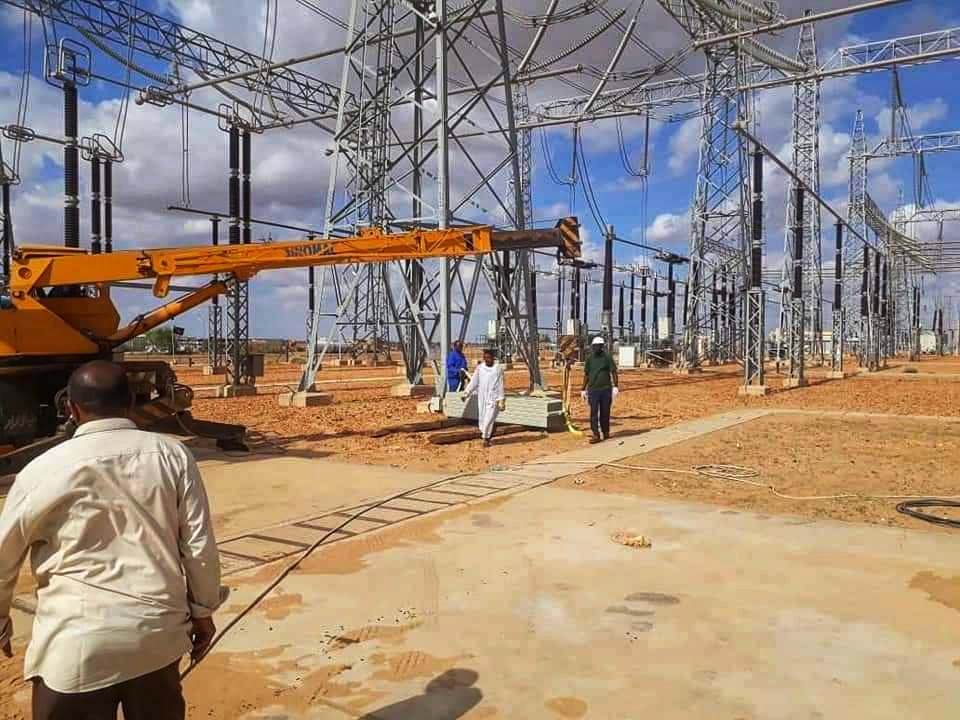Power Outages Disrupt Sudanese Lives and Plunge Cities into Darkness
Mashawir – Report – By - Minhaj Hamdi

Several Sudanese states are suffering from prolonged power outages, further worsening living conditions amid the ongoing war and its many crises.
Recently, drone attacks on power generation stations in areas controlled by the Sudanese army have intensified, after being targeted by the Rapid Support Forces (RSF), contributing significantly to the instability of the electricity supply.
Day and Night Struggles
Mohamed Haroun, a resident of Port Sudan, told Mashawir that “the situation has become unbearable in this heat and under the direct sun, which has led to cases of meningitis, not to mention the high humidity that increases the feeling of extreme heat.”
He added: “There’s been a noticeable decrease in the number of pedestrians on the streets, and market activity during the daytime has significantly dropped. But the suffering intensifies at night, with many unable to stay indoors and forced to sit in open spaces, fields, and near the sea until dawn.”
Haroun explained that the power cuts have disrupted the delivery of essential services, especially in hospitals and other vital sectors.
Harsh Conditions
Mouda Al-Tahir, a resident of Omdurman’s Al-Thawrat area, told Mashawir: “We’ve been suffering from a power crisis for more than ten days now, with no solutions in sight, all while dealing with complex health conditions.”
She noted that “relative stability in cities under army control doesn’t mean the power stations and transformers are safe. Even the so-called ‘safe states’ haven’t been spared from RSF drone attacks, not to mention the targeting of the Merowe Dam—Sudan’s largest and most important electricity project.”
She continued: “In my view, solar energy is currently the best option, but most families have depleted their savings and can’t afford it, especially with daily work halted and no salaries paid in the public or private sectors for over two years.”
Destruction and Losses
In Khartoum State, the electricity sector has suffered massive destruction due to aerial and artillery bombardments exchanged between the two warring forces for nearly two years. In addition, widespread looting has affected most supply networks and power lines, plunging much of the capital into complete darkness—making it nearly impossible for displaced residents to return.
Abdallah Ahmed Mohamed, General Manager of the Sudanese Electricity Holding Company, said in a press statement: “Initial estimates of losses in the electricity sector across the country exceed one billion dollars.”
He added: “Preliminary inspections following the army’s recapture of most neighborhoods in the three capital cities revealed unprecedented destruction and theft of electrical infrastructure in Sudan’s history. Substations and distribution transformers in residential areas, industrial zones, and farmlands were dismantled, and high- and medium-voltage towers were attacked.”
Impact on Services
Economic analyst Diaa Hamid told Mashawir: “Targeting economic infrastructure contradicts international norms and represents a dangerous development in the trajectory of the war, especially since these facilities are strategic and directly linked to people’s lives—particularly hospitals and other essential services where electricity and water are crucial.”
He emphasized that “the recent developments in the war have severely impacted Sudan’s economy. The state must urgently implement both economic and military measures to secure these vital and strategic facilities, prevent further targeting, and ensure their swift return to service.”
He concluded: “It’s essential to document the damage and destruction for the international community, as these acts of sabotage violate international norms that prohibit targeting civilians and their essential services, such as electricity, hospitals, and water stations.”




